Delta-8 retailers support crackdown on packaging appealing to kids
Delta-8 packaging crackdown
"Deceptive" is how the federal government described some edible THC products.
MILWAUKEE - Deceptive. That’s how the federal government described some edible THC products.
In cease-and-desist letters, the Federal Trade Commission (FTC) and Food and Drug Administration (FD) said kids could mistake the products’ packaging for their favorite snacks. Three local retailers tell Contact 6 they support the push for safer packaging.
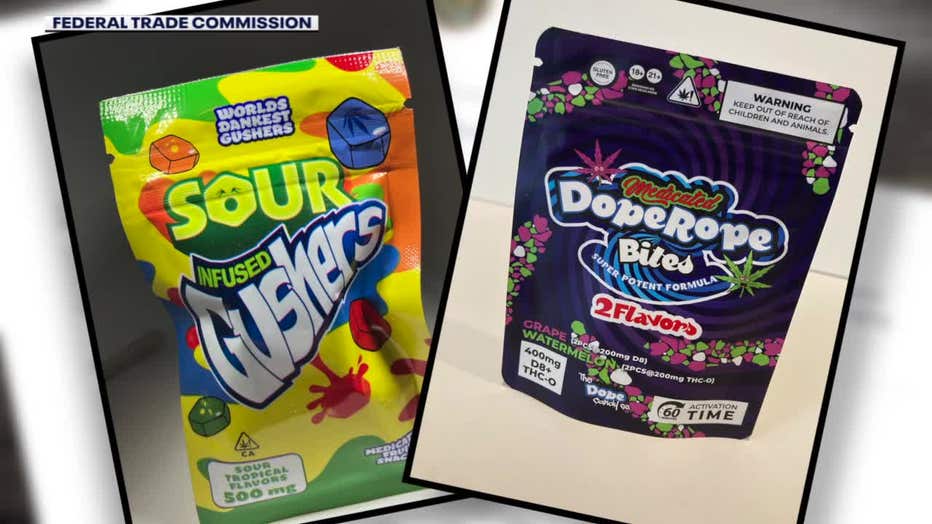
From her Oak Creek shop, Rachel Cartwright has a front row seat to the evolution of an industry. The 2018 Farm Bill allows Cartwright to sell hemp products like CBD-derived delta-8 THC.
At times, the changing regulations within her industry have caused Cartwright frustration. Still, she supports a recent crackdown on some packaging of delta-8 products.
"We want to make sure people are as safe as possible," said Cartwright. "Especially children."
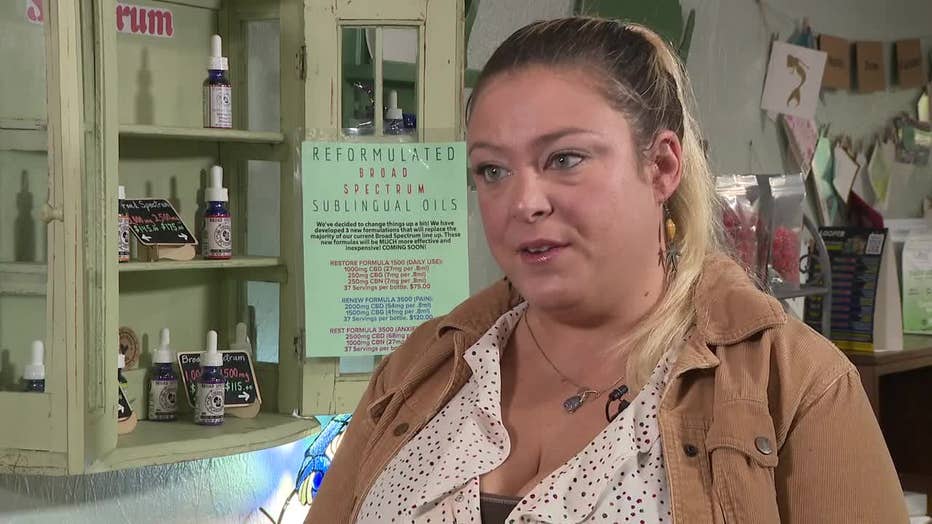
Rachel Cartwright
In July, the FTC and FDA sent warning letters to six companies across the country. The agencies said the companies marketed delta-8 THC products in packages nearly identical to snacks and candy children eat. The products included THC-infused "Doritos" and delta-8 "Nerds" candy.
SIGN UP TODAY: Get daily headlines, breaking news emails from FOX6 News
"You know, stoney bears versus gummy bears," Cartwright told Contact 6. "But, if there’s a bear on the outside of the package, either way it’s going to appeal to a child."
It is legal to sell and possess delta-8 products in Wisconsin, although possession under 21-years of age is prohibited. The look-alike packaging is a concern because delta-8 can have psychoactive effects.
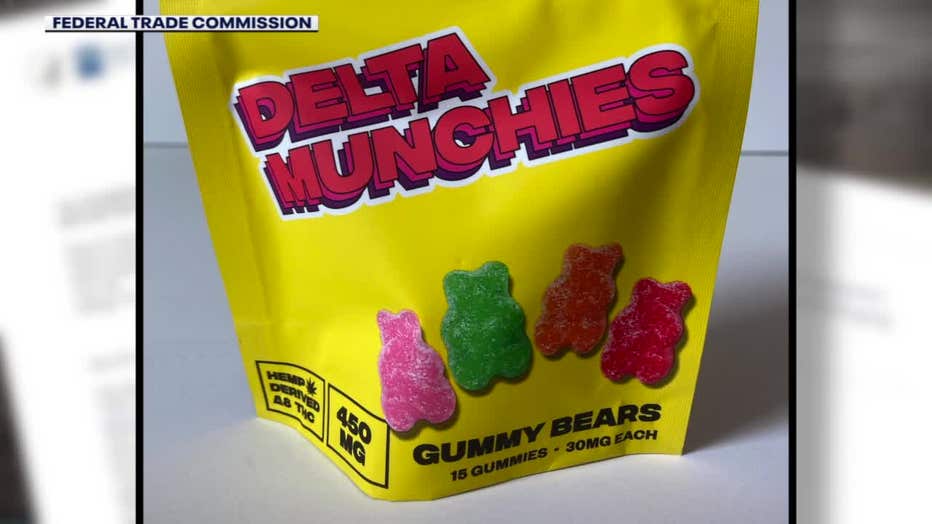
"A kid getting into one of these edible products that are designed to look like candies, they can very quickly become disoriented and confused," said Ryan Feldman, a Wisconsin Poison Center clinical toxicologist.
The Wisconsin Poison Center’s toll-free call center is on standby 24-7. Last year, the center consulted on 145 exposures to delta-8 THC products. Forty-seven of those involved kids less than 12 years old.
"We’ve had children in the hospital and ICUs for a number of days because of the monitoring they need," said Feldman. "Because they are so sedated and unable to perform their daily tasks."
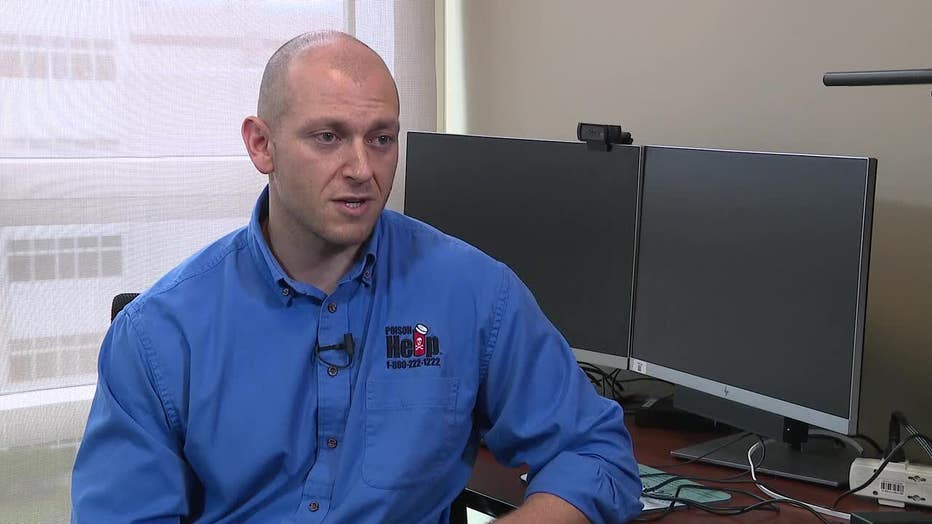
Ryan Feldman
For an adult, their delta-8 THC dose may be a single gummy, or even half a gummy. A kid who finds the bag might unknowingly eat a handful.
Feldman said its possible to eat an entire bag without feeling the effects for thirty to forty minutes.
FREE DOWNLOAD: Get breaking news alerts in the FOX6 News app for iOS or Android
"Then, suddenly, you’re in trouble," said Feldman.
Contact 6 reached out to multiple stores that sell delta-8 THC products. The managers of the three stores that responded said the crackdown on look-alike packaging is positive for the industry.
"Definitely helpful," said Kody Harenda, manager of Hazy Dayz in Milwaukee. "Any misuse of a product is negative towards the industry."
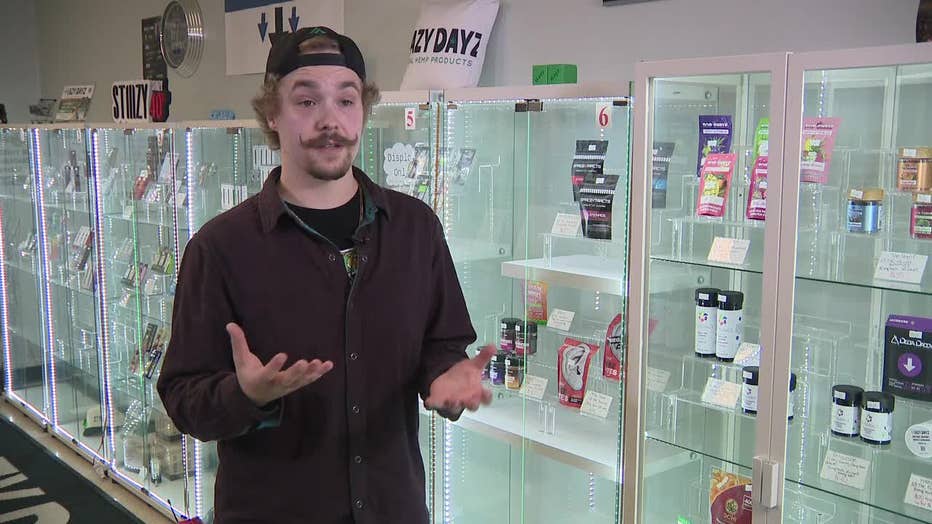
Kody Harenda
None of the three stores that Contact 6 visited sell the products targeted by the FDA. They do sell delta-8 gummies and other edibles.
Harenda showed Contact 6the childproof packaging that’s common at some retailers. Some of the bags were opaque and used child-resistant seals. One Hazy Dayz package had a childproof button.
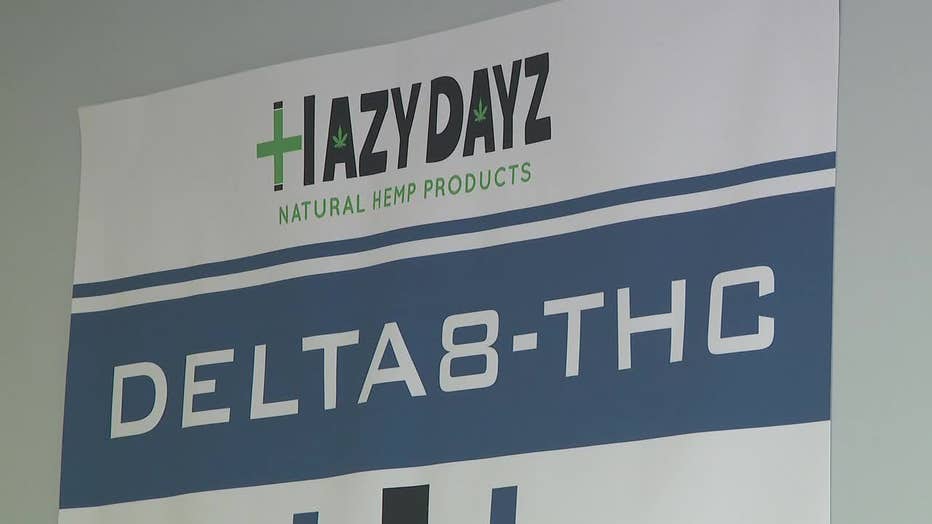
"You really do have to force it down," said Harenda, while demonstrating.
At Smoke World Vape, manager Sean Linne says customers can keep their delta-8 items in a locked bag.
"It’s best to keep in a high cupboard. Locked away or in a safe," said Linne.
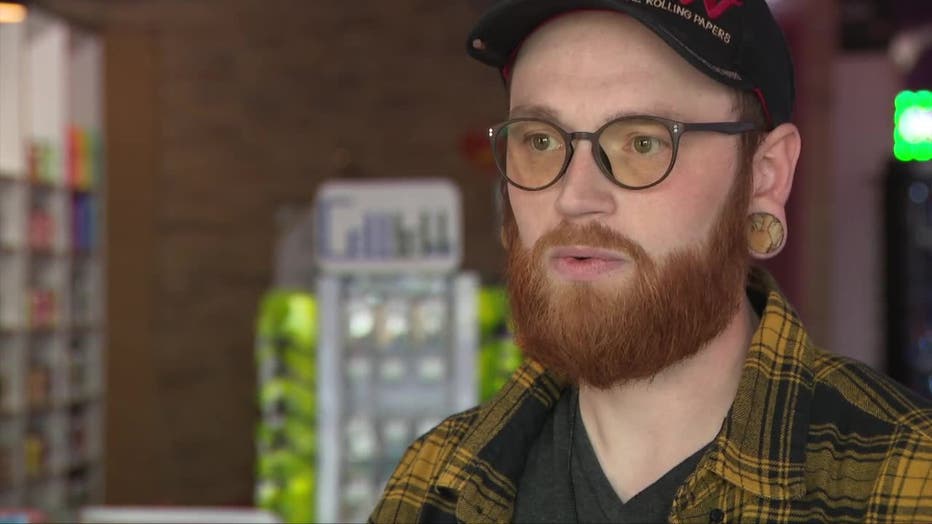
Sean Linne
At CBD Therapeutics, Cartwright said parents can opt for a delta-8 THC oil, instead of edibles.
"The kids is not going to want the oil as much as they want to look for candy," said Cartwright.
Delta-8 THC products are not evaluated or approved by the FDA for safe use. Retailers say their customers use them to ease chronic pain or anxiety. Others use them to relax.
Contact 6 reached out to the business that received the cease-and-desist letters. None responded. The FTC said it could not disclose whether the companies took any action because the information is "nonpublic."
For poison questions, you can visit the Wisconsin Poison Center website or call 1-800-222-1222.

